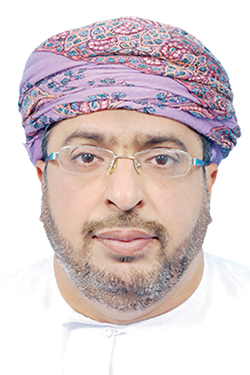

Haider Al Lawati - haiderdawood@hotmail.com - The pace of foreign investments in the Duqm Special Economic Zone has increased since it was identified for the establishment of various industrial, service and logistics projects. Each year, the scope of infrastructure in the zone was expanded to accommodate future projects under a plan developed for the zone which is expected to be one of the world’s premium free zones.
Last year, the Special Economic Zone Authority at Duqm (SEZAD) signed a number of investment memorandums of understanding (MoUs) for the implementation of several vital projects with many countries. This includes an Omani-Qatari tie-up with Karwa Motors to establish a car assembly unit with an investment of nearly RO 160 million.
Omani-Qatari investments are expected to see further interaction at government and private levels, especially since partnership between Omani institutions and companies in the past few months have been attributed to economic relations between the two countries before the establishment of the GCC, and as a result of recent events in the Gulf region, which accelerated this standpoint.
A few days ago, the Special Economic Zone at the coastal city of Duqm, overlooking the Arabian Sea and the Indian Ocean, celebrated the laying of cornerstone for Karwa Motors plant, one of the Qatari companies investing in the Sultanate.
This project is based on a strategic partnership between Oman Investment Fund, which is considered one of the sovereign funds and will own 30 per cent of the company’s new shares, and Mwasalat, Qatar’s national transport company, which will own 70 per cent stake.
The laying of the foundation stone for this project coincided with the celebration of the Sultanate’s 47th National Day. This project will be one of the largest in the region by 2022, covering an area of 220,000 square metres and an initial investment of $90 million in the first phase to produce three types of buses for passengers, schools and workers. The project is set to employ 200 people in the first phase.
This is considered one of the most important projects in the Gulf region and beyond through the production of 1,000 buses a year (84 buses per month on average). Phase one will be completed by the end of 2019, with the actual production set for the second quarter of 2020.
Moreover, there will be other phases to increase production to a peak of 3,000 buses a year, or 250 monthly in average, although this step is subject to supply and demand in the two countries and neighbouring markets, according to officials.
Since Duqm Special Economic Zone is located near African markets, the company will take advantage of that, especially as the Sultanate enjoys strong friendly relations with all countries in this and other continents.
Companies that have partnered in the bus assembly project believe there is major and positive economic feasibility in its establishment, especially as the Gulf region lacks such vital projects that boost economic diversification on one hand, and provide employment opportunities for the region’s population on the other.
Although this plant will start with bus assembly in cooperation with the (Haeger) Chinese company to provide technology, there is a great desire to promote such projects to begin later in the establishment of other necessary industries such as tyres, seats, lamps, batteries, glass and other supplies.
With the existence of such industrial zones, the Sultanate has been able to attract many investments in the past five years to become today a hub for many services and logistics industries eyed by investors worldwide.
Oman Observer is now on the WhatsApp channel. Click here



